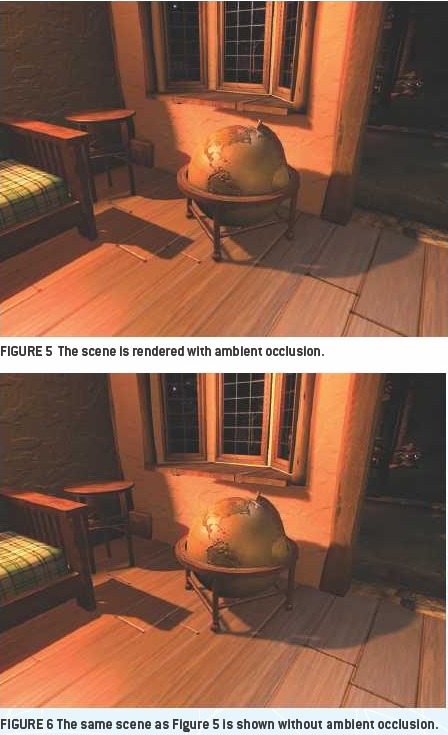Are game graphics at a point of diminishing returns?
In that case, what do we mean by “diminishing returns”?
- Does it mean that an increase in the graphical budget of a game does not increase sales correspondingly?
- Or does it mean that, subjectively, we are at a point where things look “good enough”?
- Or are we talking negative returns? That increasing polygon count makes humans look worse due to the uncanny valley?
We could also look at a case study. Megan Fox and Stuart Compton have an article in the latest Game Developer Magazine about Ambient Occlusive Crease Shading.
(Disclaimer: I certainly respect the work done here, and I do not mean to pick on these authors. The stated goal is even of moving away from the “imitative” towards the “illustrative”, which I find good. And perhaps things will look different once they start moving.)
Nevertheless: How big a difference do you see between figure 5 with, and figure 6 without ambient occlusion? How much effort is it worth going from figure 6 to figure 5? Is this not diminishing returns?

(Illustration by Fox & Compton, from Game Developer Magazine, March 2008)
